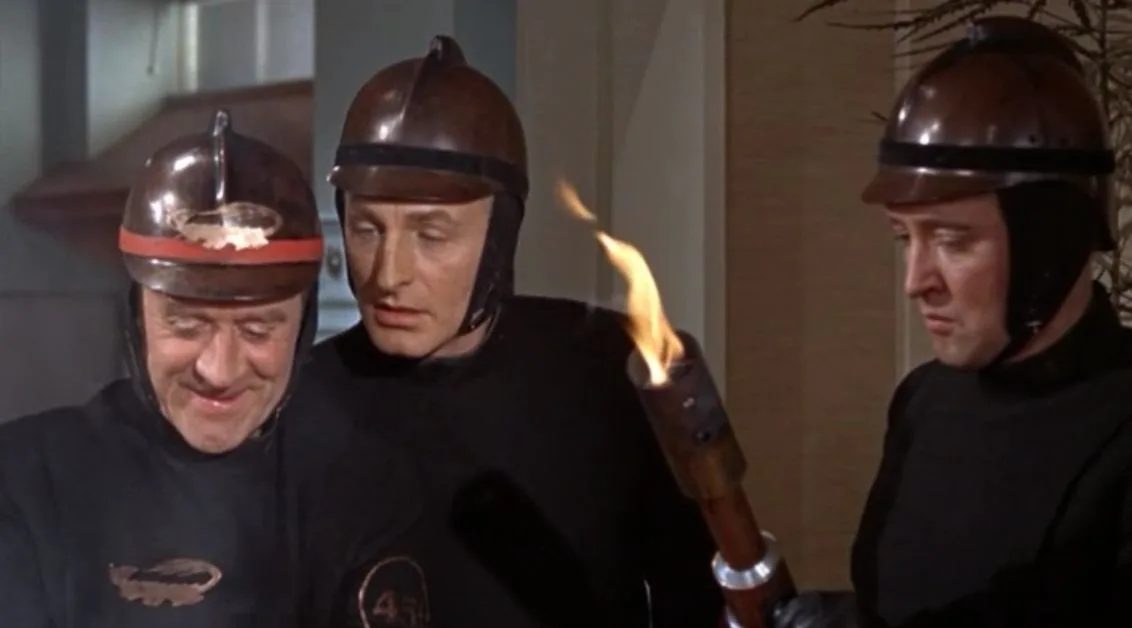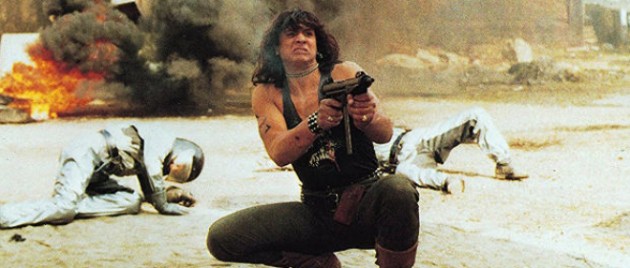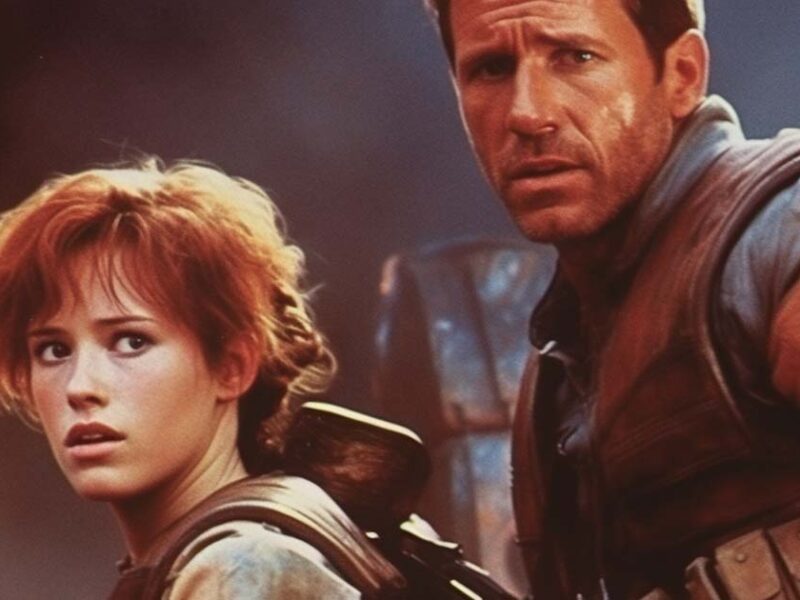Stellar Performances Ground a Thought-Provoking Tale in Fahrenheit 451 (1966)
François Truffaut‘s adaptation of Ray Bradbury‘s seminal novel, “Fahrenheit 451,” is a cinematic triumph that stands the test of time. Released half a century ago, Fahrenheit 451 (1966) deftly captures the essence of Bradbury’s dystopian vision.
Firemen are tasked with burning any books in a future society where books are illegal. Oskar Werner leads the cast as Guy Montag, a conflicted fireman who begins to question the system. Nonetheless, Werner’s portrayal brings depth to Montag’s internal struggle, making the character’s transformation palpable and relatable.
Julie Christie is in a dual role as Montag’s wife Linda and the enigmatic Clarisse. They both deliver a captivating performances. Her ability to embody two contrasting characters highlights the societal dichotomy at the heart of the story. Christie’s presence on screen is magnetic, providing both emotional resonance and intellectual intrigue.
Visual Brilliance and Thoughtful Design
Truffaut’s direction coupled with the cinematography of Nicolas Roeg creates a visual landscape that is both stark and striking. The sterile, monochromatic world of conformity contrasts sharply with the vivid imagery of forbidden books and the natural world. This visual dichotomy of Fahrenheit 451 (1966) reinforces the thematic conflict between suppression and intellectual freedom.
The design of the firemen’s world is meticulously crafted. Production took care of all the details. Obviously, design is brilliant, from the futuristic fire trucks to the iconic fireproof suits. The visual elements are not only aesthetically engaging but serve as powerful tools for storytelling.
Fahrenheit 451 (1966) – Timely Themes That Resonate
Bradbury’s cautionary tale about the dangers of censorship and the suppression of knowledge indeed remains as relevant today as it was in the 1960s. The film’s exploration of intellectual freedom, conformity, and the power of literature to ignite change strikes a chord in an era of rapidly evolving technology and shifting societal norms.
The film’s score, composed by Bernard Herrmann, complements the narrative with its haunting melodies and evocative themes. Herrmann’s music adds an emotional depth to the film, underscoring pivotal moments and enhancing the viewer’s connection to the characters and their plight.



